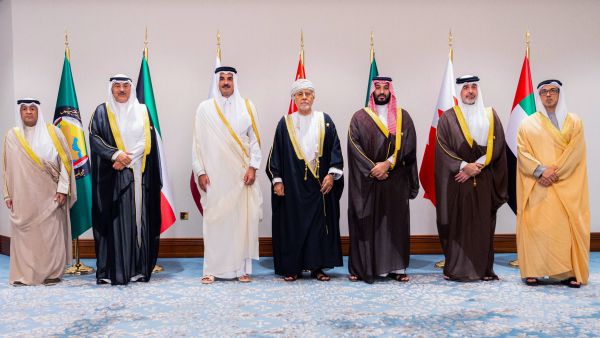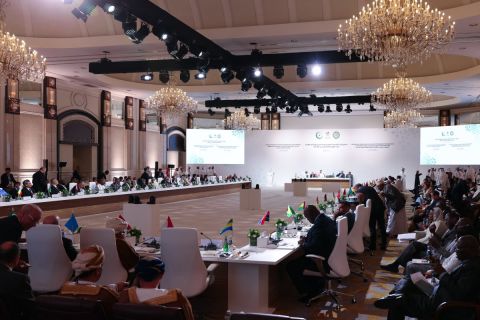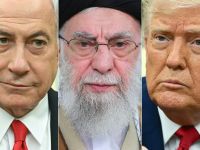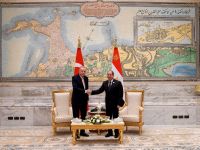ALBAWABA- The emergency Arab-Islamic Summit, convened in Doha by the Arab League and the Organization of Islamic Cooperation (OIC), concluded with a resounding condemnation of Israel’s September 9 airstrike on Qatar, denouncing the assault as a “cowardly and illegitimate” violation of sovereignty that threatens regional peace and stability.
Leaders and representatives from over 50 Arab and Muslim-majority nations, including Qatari Emir Sheikh Tamim bin Hamad Al Thani, Iranian President Masoud Pezeshkian, Egyptian President Abdel Fattah el-Sisi, Turkish President Recep Tayyip Erdoğan, and Malaysian Prime Minister Anwar Ibrahim, voiced unified outrage over the strike that killed five Hamas officials and a Qatari security officer.
The final communiqué underscored “absolute solidarity” with Qatar, rejected attempts to justify the assault, and called on the international community to hold Israel accountable for breaching international law.
The statement warned that Israel’s “brutal aggression” not only destabilizes Gulf security but also undermines international mediation efforts and erodes trust in regional coexistence, including normalization efforts under the Abraham Accords.
Leaders agreed to instruct the GCC Joint Defense Council to convene urgently in Doha to activate joint defense protocols and enhance deterrence measures.
Several leaders delivered sharp rebukes of Israeli policy. Egypt’s President el-Sisi described the strike as a “grave violation of international law,” while Turkey’s President Erdoğan warned that Netanyahu’s government seeks to drag the region into chaos through illusions of “Greater Israel.”
Pakistan’s Prime Minister Shehbaz Sharif urged the creation of an Arab-Islamic task force to translate condemnation into action, stressing that “unity and cohesion are essential to preserve security and sovereignty.”
Jordan’s King Abdullah II declared that “the security of Qatar is our security,” while Syria’s President Ahmed al-Sharaa and Algeria’s government both reaffirmed full solidarity with Doha against what they called “brutal Israeli attacks.”
Qatari Emir Sheikh Tamim bin Hamad Al Thani, whose country has hosted critical Gaza ceasefire negotiations, accused Netanyahu of seeking to turn the Arab world into an Israeli sphere of influence. “This is a dangerous illusion,” he warned, pledging that Israel’s attempts to divide the region “will not pass.”
The summit closed with a collective vow to intensify diplomatic, political, and security coordination across the Arab-Islamic world to counter Israeli aggression, defend regional sovereignty, and press forward in supporting Palestinian rights.
Despite the fiery rhetoric, Arab and Islamic leaders have repeatedly limited their responses to condemnations, falling short of even minimal actions that would reflect the will of their people.
Calculations of state interests continue to override collective outrage, leaving measures such as severing political and economic ties, expelling Israeli envoys, or providing concrete support to Gaza off the table.
This hesitancy stands in stark contrast to countries like Spain, which in recent years has expelled the Israeli mission, canceled major arms deals, and actively pushed for accountability over atrocities in Gaza.
Meanwhile, Israel has escalated its provocations, striking targets in no fewer than seven Islamic countries, Qatar, Yemen, Syria, Lebanon, Tunisia, Gaza, and Iran, within a matter of months, underscoring the gap between Arab-Islamic condemnations and effective deterrence.











